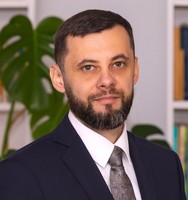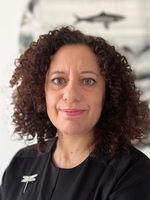Laboratory for the Study of Medical Communication in Health Care
Department of Social Medicine
Faculty of Health Sciences with the Institute of Maritime and Tropical Medicine
ABOUT US
The Laboratory is an interdisciplinary research center focusing on the analysis of communication in the health care system. Activities range from empirical research (quantitative and qualitative) to educational implementation and national and international cooperation. In our research, we focus on analyzing specific medical communication problems taking into account the dual perspective of patients and medical personnel. This approach allows accurate identification of differences in expectations and experiences of both parties, which in turn provides an attitude of mutual understanding and more effective communication. We specialize in sociological analysis based on quantitative methods such as: CAWI (Computer – Assisted Web Interview) and PAPI (Paper & Pen Personal Interview) and qualitative ones: IDI (Individual in-depth Interview) CAPI (Computer – Assisted Personal Interview). The Laboratory brings together experts in medical sociology and medical communication, and aims to improve the quality of relationships between patients and professionals, reinforce empathy and counteract discrimination in health care.
The Laboratory has projects and research in international cooperation with universities in France, Colombia, Malta, and universities in the USA: in Indiana and Arkansas. We also carry out research in Poland and the personal experience of our Team is associated with cooperation with leading medical universities and patient institutions and foundations.
The Laboratory’s overarching goal is to build effective and efficient solutions in the area of medical communication on the basis of ongoing research.
MAIN AREAS OF ACTIVITY:
- Medical communication in difficult situations
Numerous projects have been conducted on effective and empathetic communication of medical information, both from the perspective of patients, students and doctors. The work resulted in new functional and didactic proposals for solutions and new communication tools in the area of conveying unfavorable medical information.
- Research on empathy as a key competency of medical personnel
In our study, we analyzed the psychological and social factors shaping the ability to empathize, including the impact of stress, fatigue and cognitive flexibility. The results of the study were used to develop recommendations for modifying medical education programs.
- Communication and collaboration with obese patients
We conducted a comprehensive survey of patients and medical personnel indicating differences in experiences and perceptions of obesity treatment. The results were used to develop recommendations for clinical practice and health policy.
- Cross-cultural communication in perinatal care
Qualitative and quantitative research was conducted on the experiences of midwives and migrant women from Ukraine, identifying cultural and language barriers in medical relationships.
- International cooperation in the field of palliative and oncology care
In collaboration with universities in Malta, Colombia, the UK and the USA, we are conducting research in the areas of communication, spirituality and social (cross-cultural) constructs of illness and needs in the field of palliative care. Our work has resulted in developing a new tool for psycho-existential support for people at the end of life (4You End-of-Life Patient Support Tool), among other things.
Completed project:
- Palliative care
- The Essence of Palliative Care. Patients’ experiences in the context of receiving support in Malta
- 4You End-of-Life Patient Support Tool
- Cancer versus heart diseases – specificity of disclosure posts from individuals with the disease and their commentators on X (formerly Twitter)
TEAM

The Laboratory is headed by Dr. Habil. Krzysztof Sobczak, Head of the Department of Sociology of Medicine and Medical Communication at MUG. Organizer of the “Project for the development of communication competence of students of the Medical University of Gdansk – Med-Kom”. Coach-consultant in the area of consulting and training on patient communication, AC/DC, and competence coaching. He works with patient organizations and teaches at the Ethical Areopag in Puck. He is a member of the Polish Society for Medical Communication and the Polish Society for Psychooncology, the Working Group on Supporting Communication Teaching at KRAUM, and in the Team for Counteracting Discrimination against People with Obesity at the Polish Patient Ombudsman.
e-mail: krzysztof.sobczak@gumed.edu.pl

Katarzyna Leoniuk, Ph.D. assistant professor in the Department of Sociology of Medicine and Medical Communication at MUG, sociologist, specialist in sociotherapy and nonviolent communication (NVC). Member of the Anti-Obesity Discrimination Team under the Polish Patient Ombudsman. She has led and co-lead research projects for the Gdansk Center for Addiction Prevention, the “OD-WAGA” Foundation and HospiCARE.
e-mail: kurdziel@gumed.edu.pl

Weronika Kamińska-Skrzyńska, Ph.D. assistant professor in the Department of Sociology of Medicine and Medical Communication, MUG’s sociologist specializing in sociology of medicine research focusing on palliative, hospice and oncology care. She conducts research in international collaborations targeting the needs of patients, the health care system, as well as a global perspective on patient care.
e-mail: weronika.kaminska-skrzynska@gumed.edu.pl
PUBLICATIONS
- Medical communication in difficult situations:
Sobczak K. (red.) Przekazywanie niekorzystnych informacji medycznych. GUMed, 2023.
Kotłowska A. et al. Influence of personal experiences of medical students on their assessment of delivering bad news. IJERPH, 2022, 19(19): 12040.
Lenkiewicz J. et al. Delivering bad news: self-assessment and educational preferences of medical students. IJERPH, 2022, 19(5): 2622.
Sobczak K. The CONNECT Protocol: delivering bad news by phone or video call. Int. J. Gen. Med., 2022, 15: 3567–3572.
Sobczak K., Leoniuk K., Janaszczyk A. Delivering bad news: patient’s perspective. Patient Prefer. Adher., 2018, 12: 2397–2404.
Sobczak K. et al. Delivering bad news by physicians: Polish reality check. J. Med. Sci., 2016, 85(3): 172–177.
Sobczak K. Procedura powiadamiania o śmierci pacjenta. Anaesthesiol. Intens. Ther., 2013, 45(4): 260–263.
Leoniuk K., Sobczak K. Unfavorable medical diagnosis: oncological patients’ experiences and preferences. Health Commun., 2021, 36(4): 433–439.
Sobczak K., Leoniuk K., Janaszczyk A. Delivering bad news in the perspective of patient rights. Pom. J. Life Sci.
- Communication and cooperation with patients suffering from obesity:
Mojkowska A., Sobczak K., Leoniuk K. et al. Medical or common knowledge? Obes. Facts, 2023, 16(3): 216–223.
Leoniuk K., Sobczak K. Experience of patients suffering from obesity in their contact with nurses. Pielęg. Opiece Długotermin., 2020, 5(3): 219–228.
Sobczak K., Leoniuk K., Rudnik A. Experience of Polish patients with obesity in contacts with medical professionals. Patient Prefer. Adher., 2020, 14: 1683–1688.
Sobczak K., Leoniuk K. Attitude towards obesity and its treatment. Fam. Med. Prim. Care Rev., 2020, 22(4): 325–330.
Sobczak K., Leoniuk K. Attitudes of medical professionals towards discrimination of patients with obesity. Risk Manag. Healthc Policy, 2021, 14: 4169–4175.
- Empathy as a key competence of medical personnel:
Rudnik A., Sobczak K., Sawicki A. et al. Exploring the interplay of stress, fatigue, and empathy. PLoS ONE, 2025, 20(4): e0321946.
Zdun-Ryżewska A., Sobczak K., Rudnik A. Fatigue, pro-social attitude and quality of life as predictors of empathy. Int. J. Environ. Res. Public Health.
Sobczak K., Zdun-Ryżewska A., Rudnik A. Intensity, dynamics and deficiencies of empathy. BMC Med. Educ., 2021, 21(1): 487.
Sobczak K., Popowicz B. The analysis of the empathy factor in students of medical sciences._ Pol. Ann. Med., 2019, 26(2): 145–150.
CONTACT
Laboratory for the Study of Medical Communication in Health Care
Department of Social Medicine
Medical University of Gdańsk
Tuwima St. 15
80-210 Gdańsk
tel.: 58 349 15 53
photo Paweł Sudara/MUG and private archive